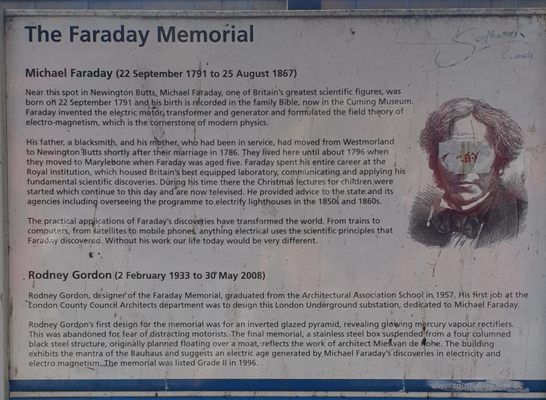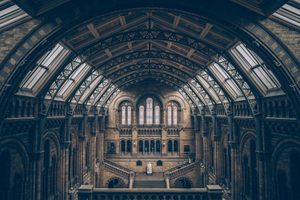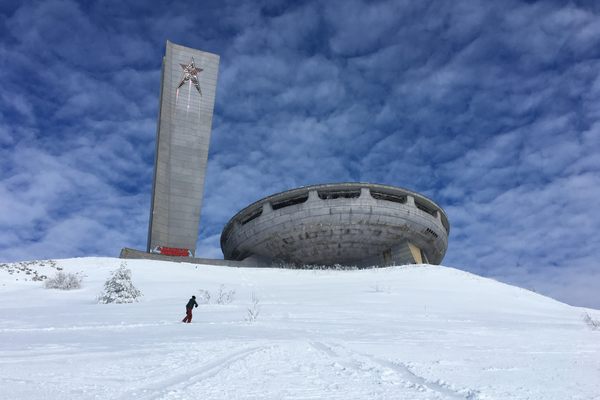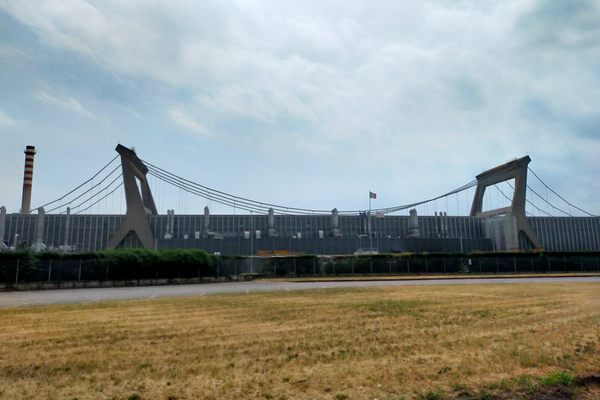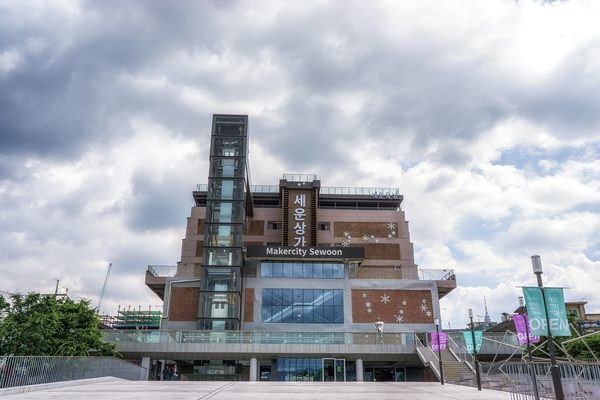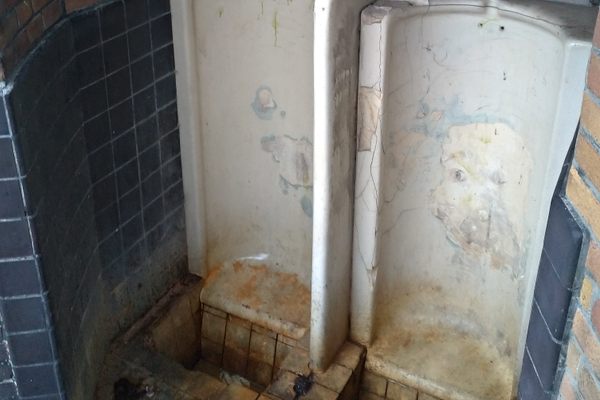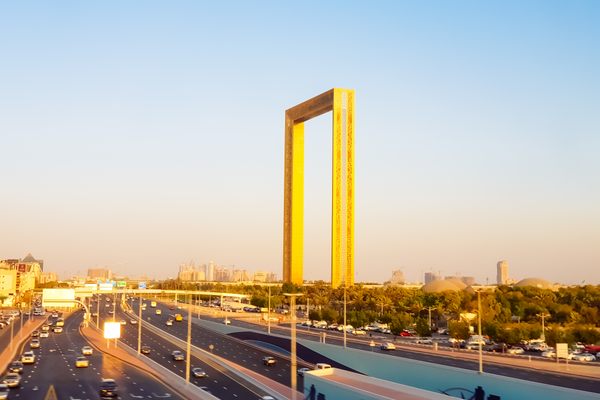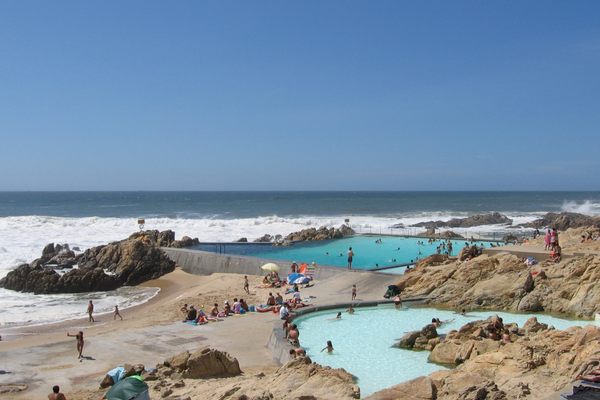About
At the center of a busy traffic interchange of Elephant and Castle sits a gleaming stainless steel box that has perplexed south Londoners for decades. Depending on which urban legend is favored at the time, one might be led to believe the unusual building is some kind of nuclear facility or that it is home to the electronic musician Aphex Twin.
The truth, however, is that it is a memorial to the Victorian physicist Michael Faraday. A local boy from Newington Butts, Faraday is most famous for his discovery of electromagnetic induction in 1831. He found that by passing a magnet through a loop of wire, an electrical current flowed through the wire. This work provided a basis on which Scotland's James Clerk Maxwell later developed the first comprehensive theory of electricity and magnetism.
The building was designed by Brutalist architect Rodney Gordon in 1959 to house, quite fittingly, a London Underground electrical substation. Originally, Gordon had planned the structure in glass so that the transformer inside could be seen at work. However, the potential for vandalism made steel the favored material.
This design change is at least part of the reason why the building has a decidedly modern appearance that belies its true age. To this day, many Londoners are confused by the memorial, and as recently as 1995 the London Evening Standard ran a story about the structure with the headline: "But what on Earth is it?" In 1996, however, the building received a different sort of publicity as a local schoolgirl won a BBC competition to devise a new lighting scheme for the site.
Although a thorough redevelopment of the Elephant and Castle area is in the works, the Faraday Memorial's status as a grade II listed building ensures that it will not be demolished and will instead be moved to a new site if necessary.
Related Tags
Know Before You Go
Despite the major development underway, the monument is unmissable in the middle of the busy Elephant & Castle junction.
From the main station exit, the monument is directly in front. Access is level and the monument can be viewed at any time, although the crossings are very busy at peak times.
Published
March 11, 2010





